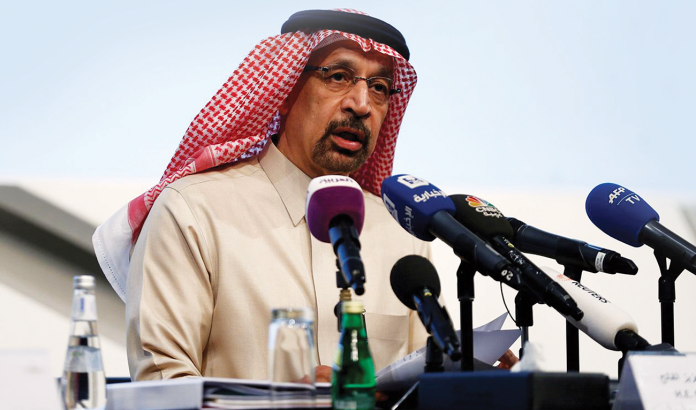RIYADH: A total of 306 new international companies were granted investor licenses in Saudi Arabia in the third quarter of 2020, a 96 percent increase on the previous three-month period, the Kingdom’s investment ministry announced on Tuesday.
The ministry released the figures as part of its new Investment Highlights Fall 2020 report, which provides an overview of the development of the Kingdom’s investment environment.
Saudi Minister of Investment Khalid Al-Falih said the latest figures showed that the Kingdom was able to retain the long-term confidence of the global investor community, and was achieving “steady and positive” economic recovery.
“Resilience against a backdrop of global uncertainty is a clear sign that the Saudi opportunity has not changed. We look forward to continuing our support of foreign investors as they access and enjoy the benefits of the Kingdom’s emerging opportunities,” he said.
The coronavirus pandemic brought an unprecedented slowdown in the second quarter when the Kingdom went into lockdown, leading to a 47 percent year-on-year decline in the number of licenses awarded.
However, the contraction began to reverse in June after Saudi Arabia began easing lockdown restrictions and scaling up economic activity, with the latest figures showing a significant rebound in investor activity.
An increase in the number of licenses granted throughout Q3 continued the recovery trend seen at the previous quarter’s end, with each month in the quarter witnessing a steady year-on-year increase.
September recorded the highest volume of new licenses, accounting for nearly 40 percent of all licenses issued.
Over the first three quarters of 2020, the ministry issued more than 800 licenses, only 3 percent lower than the same period in 2019 and 60 percent higher than the first three quarters of 2018.
India, Egypt and the UK were the leading sources of foreign investment projects in Q3, according to the report.
The “Emerging Sectors,” which include entrepreneurship, education, financial services and housing, continued to see the highest number of new foreign investment projects in Q3, followed by the industrial and manufacturing and transport and logistics sectors.
In addition to the macro-economic indicators detailed in the report, the document also included an analysis of the business opportunities available to investors in the Kingdom, including a special focus on Saudi Arabia’s G20 Presidency and recent developments in the defense and security sector.
The Kingdom aims to localize 50 percent of its military expenditure in line with Vision 2030. To this end, a series of legislative reforms has been implemented by the General Authority for Military Industries (GAMI) to make the industry more attractive to investors, including opening military manufacturing and trading activities up to 100 percent foreign ownership.
The report also highlights how the sector aims to enable the localization of broader Saudi industrial and technological capabilities through its custom Industrial Participation Program. It also provides an overview of the licensing process for defense sector investors, forecasted GDP contribution, and specific segments the industry aims to target and develop.
Data in the report also points to signs of resilience in the Saudi market, despite global economic uncertainty.
The report notes that figures from General Authority for Statistics demonstrated a 19 percent surge in manufacturing activity at the end of Q2 as the Kingdom’s Industrial Production Index climbed to 118 in July following a downturn of 99 in April.
Point-of-sales data provided by the Saudi Central Bank for Q3 also mirrored the quarterly upswing seen in other areas, with point-of-sales transactions continuing on a positive trajectory and recording a 40 percent year-on-year growth increase despite an overall decline compared to the previous three-month period.

Saudi foreign investor licenses more than doubleSaudi investment minister hails Saudi-Japan Vision 2030 as ‘major step forward’

